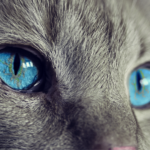Introduction
If you’re a cat owner, you’ve likely encountered the pungent phenomenon known as bad breath, or halitosis, in your feline friend. While bad breath in cats is a common issue, it can often be overlooked or dismissed as a minor annoyance. However, bad breath in cats can be indicative of underlying health problems that may require your immediate attention. In this comprehensive guide, we’ll explore the reasons behind your cat’s bad breath, how to identify the warning signs, and effective ways to manage and eliminate this issue.
Understanding Halitosis in Cats
What is Halitosis?
Halitosis refers to an unpleasant odor emanating from the mouth. In cats, this odor can be particularly strong and off-putting. Unlike the occasional stinky breath after a meal, persistent bad breath is usually a sign of an underlying health problem.
The Importance of Oral Health
Oral health is critical for your cat’s overall well-being. Cats use their mouths for numerous activities, including eating, grooming, and playing. Thus, maintaining their dental hygiene is essential for their quality of life.
Common Causes of Bad Breath in Cats
Understanding what causes bad breath in cats can help you take appropriate steps to mitigate the issue. Here are some of the most common reasons:
1. Dental Disease
Periodontal Disease
The leading cause of bad breath in cats is periodontal disease, a severe bacterial infection affecting the gums and surrounding structures. This condition generally starts with a buildup of plaque, leading to gum irritation and ultimately more severe infections.
Symptoms:
- Red or swollen gums
- Tooth loss
- Difficulty eating
Gingivitis
Gingivitis, the inflammation of the gums, is often one of the first signs of periodontal disease. It can cause bad breath due to plaque and food accumulation under the gumline.
2. Tooth Decay and Cavities
Just like humans, cats can also suffer from tooth decay or cavities. Bacteria feed on leftover food particles and produce acids that damage the enamel, resulting in bad breath.
3. Oral Tumors
In some cases, bad breath may signal the presence of oral tumors. These growths can be benign or malignant and may affect the cat’s ability to eat and groom properly.
4. Systemic Health Issues
Bad breath can also be related to other health problems not directly tied to oral health. Conditions such as diabetes or kidney disease can cause unique changes in your cat’s breath. For example:
- Diabetes: A sweet or fruity breath could indicate uncontrolled diabetes.
- Kidney Disease: A urine-like smell can be a sign that the kidneys are failing.
5. Diet and Food Choices
Some foods may result in temporary bad breath. Fish-based diets are notorious for making your cat’s breath less than pleasant. Additionally, food allergies or intolerances can lead to gastrointestinal issues, contributing to bad breath.
6. Lack of Grooming
Cats are natural groomers; they often clean their fur and mouths to maintain hygiene. If your cat isn’t grooming themselves effectively due to obesity, age, or illness, this could lead to bad breath.
7. Foreign Objects
Sometimes, foreign objects lodged in a cat’s mouth, such as plastic or string, can cause irritation or even infections, leading to an unpleasant smell.
How to Recognize Bad Breath in Your Cat
Evaluating the Breath
You may notice your cat’s bad breath during close interactions, such as petting or snuggling. To assess the severity of the issue, consider the following:
- Frequency: Is the bad breath sporadic or constant?
- Intensity: How strong is the odor? Does it improve over time or persist?
Observing Other Symptoms
Other signs may accompany bad breath, indicating a more severe problem. Watch for:
- Drooling: Excessive drooling can signal dental or oral issues.
- Weight loss: Sudden weight loss may suggest eating difficulties due to pain.
- Change in eating habits: If your cat is reluctant to eat, this could indicate problems related to oral health.
- Behavioral changes: Increased irritability or lethargy can be signs of discomfort or pain.
When to See a Veterinarian
If your cat has persistent bad breath, it’s essential to consult a veterinarian. They can perform a thorough examination and determine the underlying cause. Here are a few situations that warrant immediate veterinary attention:
- Your cat’s breath smells particularly foul or unusual.
- Accompanying symptoms of nausea or vomiting.
- Noticeable swelling or bleeding in the gums.
- Sudden changes in eating or drinking habits.
Preventing Bad Breath: Best Practices
1. Regular Veterinary Check-ups
Regular veterinary visits are crucial for monitoring your cat’s oral health. These check-ups typically include dental evaluations and cleaning recommendations.
2. Brushing Your Cat’s Teeth
While it might sound daunting, brushing your cat’s teeth can significantly reduce bad breath. Use a toothbrush and toothpaste specifically designed for cats. Start slowly to get your cat accustomed to the process.
3. Dental Treats and Chews
There are several dental treats on the market formulated to promote oral health. These can help reduce plaque and tartar while freshening your cat’s breath.
4. Fresh Water
Always ensure your cat has access to fresh water. Drinking water helps wash away food particles and bacteria that contribute to bad breath.
5. Diet Control
Consider a well-balanced diet that promotes dental health. Some cat food brands create formulas designed to reduce plaque and tartar buildup.
6. Regular Grooming
Regular grooming not only aids in general hygiene but can also help you monitor for any oral or dental issues in your cat.
Home Remedies to Freshen Your Cat’s Breath
While these are not substitutes for professional veterinary care, some home remedies can help mitigate bad breath:
1. Apple Cider Vinegar
Mixing a teaspoon of apple cider vinegar with your cat’s food can help neutralize odors. The vinegar has antibacterial properties that can help combat oral bacteria.
2. Fresh Herbs
Some fresh herbs like parsley and mint can help freshen your cat’s breath naturally. You can safely sprinkle a small amount onto their food but consult your vet first.
3. Coconut Oil
This can be beneficial for your cat’s dental health. Adding a small amount to their food may help combat bad breath and improve overall oral hygiene.
4. Pumpkin
Pure, canned pumpkin (not pumpkin pie filling) can aid digestive health and, in turn, help with bad breath. The high fiber content contributes to better digestive health.
Conclusion
Bad breath in cats can be a benign issue or a symptom of more serious health problems. Understanding its causes and knowing how to recognize early warning signs can significantly impact your cat’s quality of life. By employing preventive measures, such as regular veterinary check-ups, dental care routines, and a balanced diet, you can minimize the risk of halitosis in your feline companion.
When in doubt, always consult a veterinarian for guidance concerning your cat’s health. Remember, a cat’s breath doesn’t have to be bad; it’s a responsibility that comes with being a pet owner, and taking proactive steps can lead to a happier, healthier cat. By addressing the root causes of bad breath, you can ensure that your cat leads a happier, healthier life, free from the woes of pungent odors.
Featured Image Credit: Pixabay


